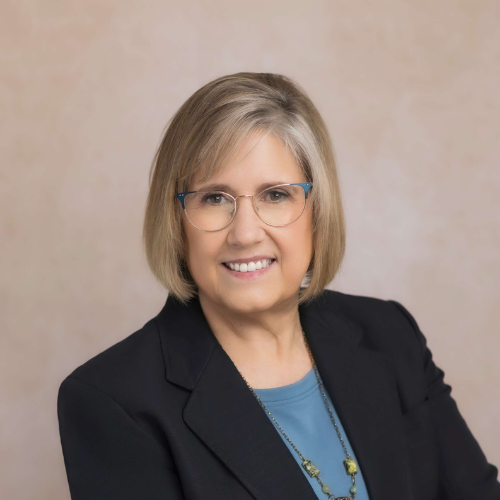Commentary on Psalm 32
If the Sundays in Lent has named themes as in Advent, this fourth Sunday would be a festival to celebrate forgiveness.1
The psalm, the epistle, and the Gospel readings all directly speak of forgiveness and reconciliation. The same could also be implied for the Old Testament text, since it tells of the people finally settling into the land promised so long ago by God. This first Passover in the land represents God’s promise to the people, a promise delayed by the stiff-necked behavior in the wilderness. The Gospel lesson provides the parables of the Lost Sheep and the Prodigal Son and the Epistle calls on us to be reconciled with God along with the familiar liturgical phrase “Anyone in Christ is a new creation.” The psalm is the accompanying celebration, the music of this festival.
Forgiveness may be the greatest power in our lives. Without it, all of the relationships on which we depend would be lost. Its repetitive narrative rolls through the stories of the Old Testament. God lovingly gives what the people need; the people turn away; God forgives and the cycle begins all over again. We humans are remarkable consistent and thankfully so is God. While we all know the importance of this forgiveness, we rarely take the time to celebrate it. This is the Sunday to do so.
The psalm begins with an important Hebrew word, asher (see for example Psalm 1:1, 2:12, 34:8). It is often translated as “happy” (NRSV) or “blessed” (NIV). However, these English words, however, do not fully capture its full meaning. In Hebrew it is not a feeling or a condition, but a way of life (Hebrew “to go straight”). There is intention and determination in this word. It is the path of life chosen and lived. In this psalm, this one is not perfect but thankful for God’s acts of “lifting transgression” and “covering sin” and “not counting iniquity.” The last line of verse 2 dovetails with the 2 Corinthians text, this one now has “no deceit in their breath” or in Pauline words “is a new creation.”
The next stanza (verses 3-4) tells of the burden and shame of sin. It is that heavy feeling as if God’s hand is “heavy upon me.” It is the prodigal on the long walk home to admit his folly and beg for mercy. It is the feeling in the pit of our stomach when we know our words or actions hurt another and that our sin also hurt God. Yet at the same time, that gnawing is the pull of a desire for a restored relationship. Here the pain is so overwhelming that it is both mental and physical. Our bodies know the pain of our sin. We feel it in our hearts and in our bones.
It takes three lines to confess and one line for God to forgive (verse 5). The distress was self-made and this one stands to confess, knowing he/she has broken the relationship with God. In this moment, we are more vulnerable than at any other time. We have turned away and have returned, like the son, and our relationship and future lies in the hands of another. The only repair is grace offered by another. We can do nothing else but stand before God and hope that God’s mercy is wider than God’s anger.
The next stanza (verses 6-7) celebrates that restoration. The feeling of relief is as strong as the weight of dread. The language used is typical for the psalms, but here it is given a new definition. These terms are usually used for God hiding the one from the enemies. Here God is a protection from my own actions, or inaction as the case may be. The mighty waters are of my own doing (verse 6). God “hides me” and “protects me” (verse 7), and “delivers me” from myself and my idiotic behavior.
The next stanza tells us that forgiven sinners are not to be lectured to, but the one providing the lecture! Those forgiven ones are to teach others of a better way. They lead the band in declaring the importance of God’s path and the ways of forgiveness. It reminds us that full restoration means just that. If we are a new creation and God has buried our sins, then there should be community wide cheering and celebration. Instead often one’s worst moments of sin and failure follow them like a homing missile. Gossip undermines restoration for the person and the community. It is important to believe in God’s words of forgiveness for us and for others. Yet these words seem too good to be true. We often act like the brother in the prodigal parable. Yes he was harmed, of that there is no doubt. But God offers all the same restoration and we choose to rejoice or to sulk and brood or join into a celebration of forgiveness and grace. We can be generous or resentful. We can believe God has created us new, or we can wear our old sins like a heavy winter coat in the sunshine. Forgiveness is counter-cultural! Forgiveness is radical! Forgiveness changes the world! Forgiveness changes us!
Today, we tend to look to the choir anthems and the sermons as the center of worship. But today we are reminded, it is the Assurance of Pardon—that tiny moment every week when we give voice to God’s greatest gift. We have heard the words thousands of times. Today, really hear them and then celebrate the reality that it is these words that make life possible.
Read in context, verse 10 may not be about some unnamed wicked, but the ones who refuse to believe what has just been declared. They are tormented by grace instead of giving it up to God and being surrounded by God’s hesed. They cannot trust that God means what God says for another or for themselves.
Notes
- Commentary first published on this site on March 6, 2016.


March 27, 2022